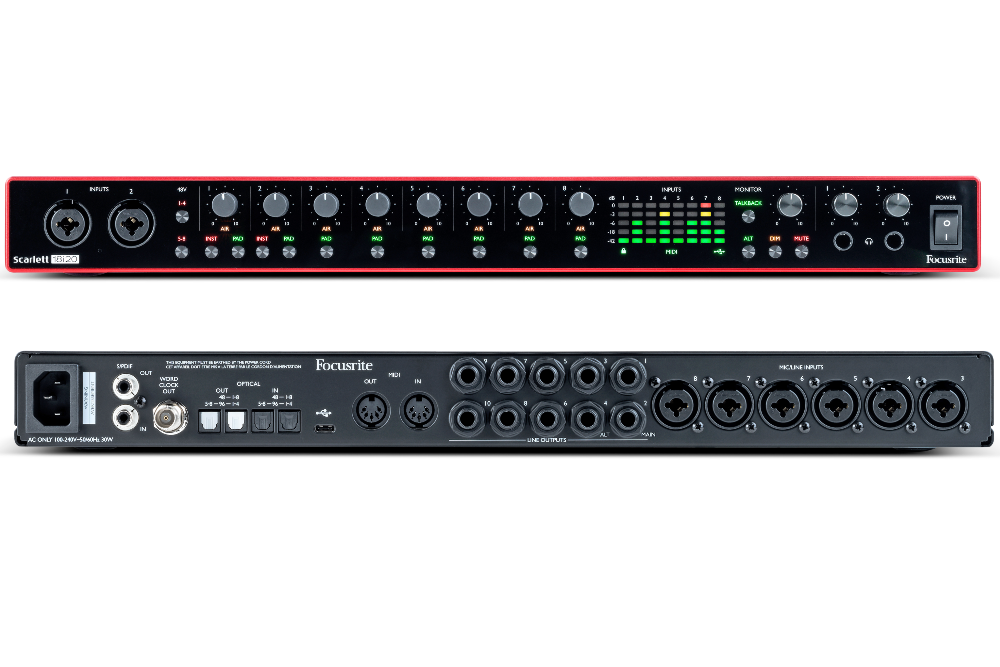Not everyone is destined to be a singer-songwriter, or a composer, or a longtime member of a band. Some of us are born with a special gift for wailing on our instrument, knocking people out with our dexterity, virtuosity and “feel.” And that sort of talent and skill can lead to a vibrant career as an in-demand session musician or as a traveling sideman.
So, how does one go about getting that gig—and gigs for years, even decades, to come? In short: you’d better have some skills to pay the bills.
Read on to get 25 helpful tips (from Bobby Borg’s book Business Basics for Musicians, 2nd Edition) spanning every period of your career—from the preliminary necessities, to breaking into the scene, to lasting over the long haul.
The Preliminary Necessities
First things first: to get that happening gig, you must hone your skills as a musician and become a force to be reckoned with. Consider the following:
• Be Amazing: Invest thousands of hours of practice first and foremost and be a great musician, because nothing else in this chapter or book will otherwise matter.
• Be Versatile, but Have a Focus: Learn to play several styles of music so that you can survive and pay the bills, but have one style that you play better than the rest and that forms the essence of “your brand.”
• Be Unique: Don’t be afraid to develop your own style and break some rules. Jimi Hendrix played a right-handed guitar upside down, and Stanley Jordan developed the “touch technique” and played chords and soloed at the same time.
• Sound Awesome: Find the right combo of amps, effects, strings, cymbals, snare drum heads, turntables, or whatever gadgets you play. In the crowded marketplace, your distinctive sound can mean everything.
• Look Interesting: Become visually appealing—whether by exercising, dressing a certain way, or wearing your hair in a certain style. Just create your own brand.
• Know How to Hang: Develop a happy, warm, and outgoing personality. Be fun to hang with. Learn to make people laugh, even if that means memorizing a few jokes or famous lines from a great movie. And finally . . .
• Learn How to Read Music: Learn how to read and write music. Many gigs won’t require reading charts, but understanding what you’re playing helps you to play it better and prepare for rehearsals.
Breaking into the Scene
Once you’ve developed some serious skills as a musician, you need to let people know you exist. Consider the following tips:
Know How to Promote Yourself: Inform people about your special skills and, most importantly, how these skills can save them time and money in the studio, on the gig, and on the road. Communicate this message via personal websites, social networks, message boards, your local branch of the union (AFM or SAG-AFTRA), and more.
• Record with Everyone: Volunteer to play on as many indie artists’ demos and recordings as possible. A seasoned producer or engineer on the session may call you for another session down the line, and/ or the artist may rehire you when he or she hits it big.
• Jam at Open Mics: Sit in frequently at open mics and jams.
• Play at Church: If you belong to a church, get involved with performing there (not only will it make you feel good, you never know who is a member of your parish).
• Study with Working Pros: Take lessons with actively gigging teachers and impress the hell out of them. Who knows, one day they may need a sub and recommend you.
• Form Your Own Band: Form your own band that features the style of music you play best, and get out there and be heard.
• Learn from the Old-Timers: Consider working with an older artist, one who may not be currently in the spotlight, but with whom you can gain valuable experience. Many artists seek out musicians to form regional bands across the United States to be their touring act for a specified region. Perhaps you can put one of these bands together.
• Become a Roadie for a Minute: Consider becoming a road technician for your favorite artist, learn all of his or her songs, and cross your fingers that a spot will open up in the band. At the very least, you’ll learn a great deal about life on the road, and make some really good friends as well.
• Get Great at Auditioning: Learn to transcribe songs note for note, get your musician friends to rehearse the songs with you, and visit the audition hall long before the actual audition—all of this will help you to reduce your nerves on that “big day.”
• Get Great at Interviewing: Know everything about your potential employers—from what they are looking for in an employee, to what their favorite sports teams are, to what their needs are. It’s not just what you play, it’s what you say. And finally . . .
• Befriend Everyone in the Business: Make friends with other musicians, bands, roadies, club promoters, producers, managers, talent agents, attorneys, equipment manufacturers, photographers, journalists, actors, models, and others in the business. You never know who may hear of the perfect working situation and recommend you.
Lasting for the Long Haul
The last group of tips deals with going the distance. Remember that it’s not enough just to find work today; you have to keep on working over the long term. The following tips can help:
• Keep in Touch: Maintain a relationship with all past employers. Reach out to them with holiday greeting cards at the end of the year, or take them out to lunch now and again. Not only is it good karma to say thanks, but their referrals are invaluable.
• Act Like a Pro, Always: Never be late for a gig, play your ass off every night, and never cancel on anyone at the last minute and leave them hanging. Maintaining your good reputation is everything.
• Maintain Your Gear: Make sure your equipment is always up-to-date and in great shape for both the road and the studio. This includes road cases, electronics, and more.
• Maintain Your Passport: Be prepared to travel abroad. As a professional working musician, you must always be ready to leave today. Renew those travel documents. Now!
• Change with the Times: Be prepared to adjust your look, playing style, and attitude. That said, you must always be true to yourself. Find a balance.
• Stay Healthy: Eat well and stay away from all unhealthy habits.
•Love Music: Always remember why you started performing—for the fun and the love of it—no matter how challenging your career gets. Don’t fall out of love.
• Stay Happy: Finally, keep smiling inside and out. Remember, no one likes a “downer.” •
BOBBY BORG is a professor of music industry studies and the author of several music industry books, including Music Marketing for the DIY Musician, Business Basics for Musicians and (with Michael Eames) Introduction to Music Publishing for Musicians on sale at finer book sellers. Contact him via bobbyborg.com.















